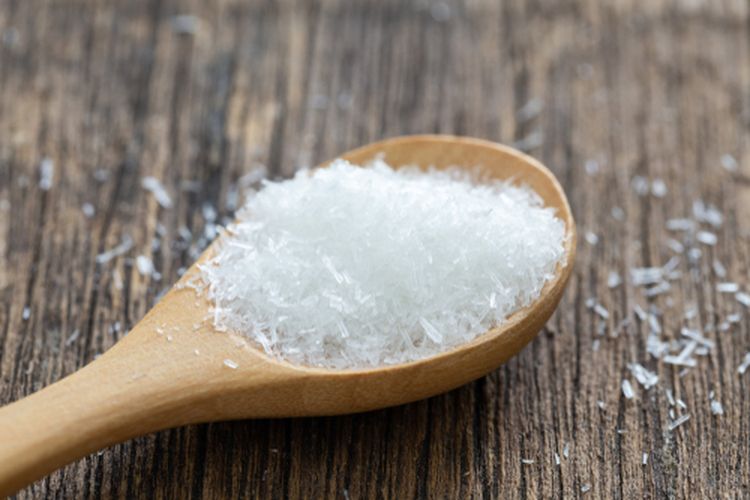Kompas.com – Monosodium Glutamate or MSG (Micin) has long been a topic of debate, especially related to its impact on health.
However, this flavor enhancer is still used widely in the food industry and can be purchased in supermarkets or online shops as additional material for cooking at home.
What is MSG or Micin?
MSG is a flavor enhancer that strengthens the savory taste or umami in food. MSG is made by combining glutamic acid – a type of amino acid that is naturally found in tomatoes, old cheese, and mushrooms – with sodium.
MSG was first discovered in 1908 by Professor Kikunae Ikeda, a Japanese biochemist.
Also read: P2MI Community Education About the Use of MSG
He extracts glutamate from seaweed broth (dashi) and finds that this substance produces a distinctive savory taste.
At present, MSG is produced through starch fermentation, sugar beets, sugar cane, or molasses, with methods similar to making yogurt, vinegar, and grapes.
Is it true that MSG is dangerous?
Many people believe that MSG is related to health problems, but recent research shows the opposite.
The negative stigma of MSG began in 1968 when Robert Ho Man wrote a letter to the New England Journal of Medicine, describing symptoms such as palpitations, numbness, and body weaknesses after consuming Chinese food.
This phenomenon came to be known as “Chinese Restaurant Syndrome”.
However, the latest studies conducted by strict control methods in humans do not find a direct relationship between MSG and health problems.
A number of world health agencies, such as the US Food & Drug Administration (FDA), European Food Safety Authority (EFSA), and UK Food Standard Agency, stated that MSG is safe for consumption in reasonable amounts.
Although some people report symptoms such as headaches, reddish faces, or palpitations after consuming MSG, research has not found strong evidence that confirms the direct relationship between MSG and these symptoms.
Also read: 13 Side Effects of MSG for Health that Need to Know
However, some individuals may have sensitivity or intolerance towards MSG.
According to Clare Thronton-Wood, a nutritionist and spokesman for the British Dietetic Association, EFSA has set an acceptable daily intake limit for glutamic acid and salt (E620-625) of 30 mg/kg body weight per day. For men weighing 70 kg, this means around 2100 mg MSG per day.
Benefits of MSG
Instead of being considered dangerous, MSG can even offer health benefits. MSG contains sodium three times less than the same amount of kitchen salt.
 Illustration of micin or monosodium glutamate.
Illustration of micin or monosodium glutamate.






